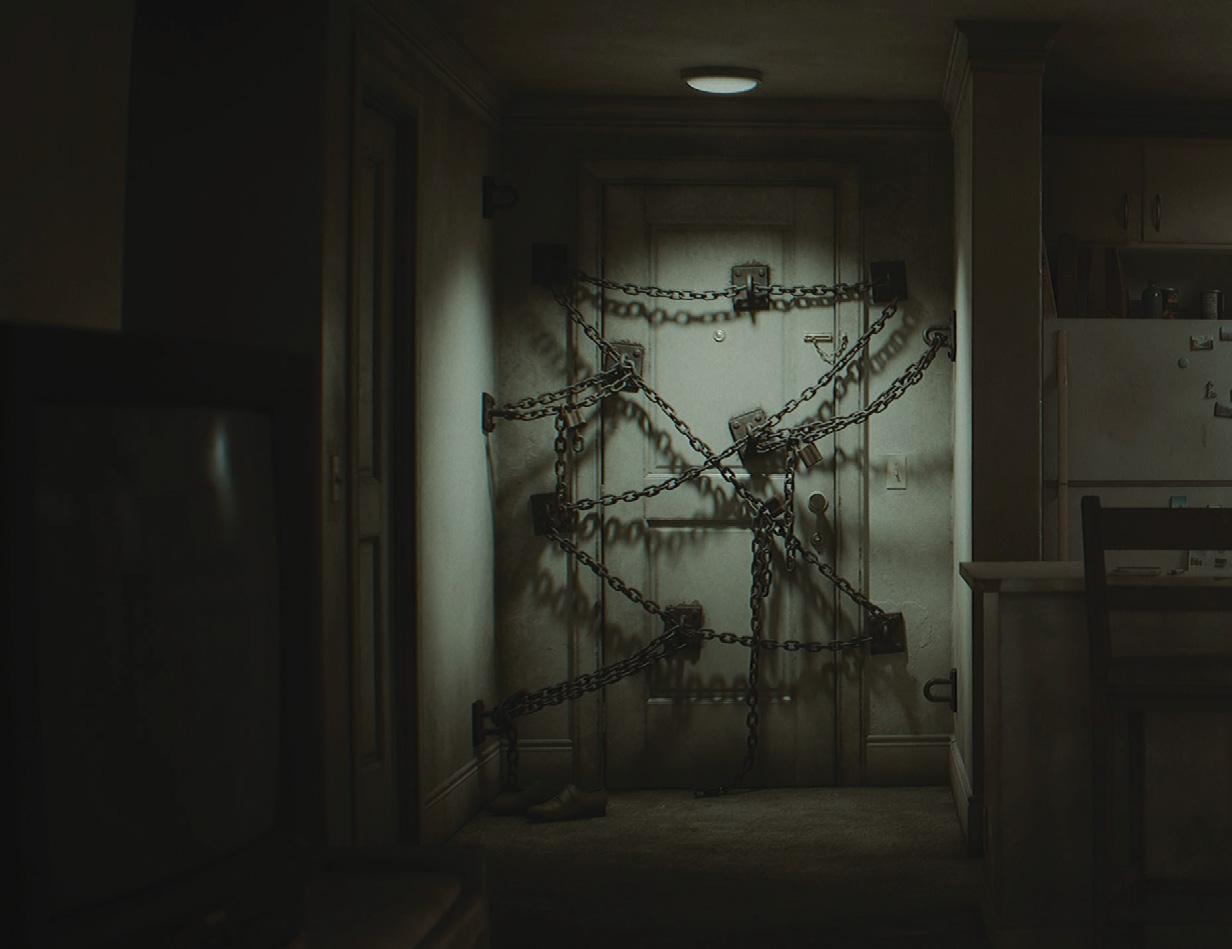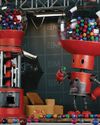
It can be tricky to give living spaces in hyper-realistic video games a grounded look. You have to find the right balance between enriching a place with details that make it believable and interesting to explore, and not making it overly grungy, unless that was the ultimate goal. To engage with the player, these environments need to have an instantly readable atmosphere and cohesive look throughout.
In this article I’ll walk through my process for recreating the apartment from Silent Hill 4: The Room, originally released back in 2004, with Unreal Engine 5. We’ll discuss the different steps that go into creating a detailed cinematic look for an environment like this. I’ll share my thoughts on making the geometry, details, textures and lighting, and my approach to building the atmosphere and presenting your work.
01BASIC SIZES AND PROPORTIONS
To achieve a realistic look for your environment, a good starting point is to use real-world references. Online second-hand stores can be a useful resource for finding furniture, appliances and other references for your scene. Try to track down good references and make blockouts that are based on the real-world size of objects. Make sure to pay attention to the proportions and dimensions of your models.
I prefer to make simple blockouts of all the modular objects, and large and medium props first, and place them in Unreal Engine with the draft lighting pass. It will show you which objects are better lit, closer to the camera, or just more important to the story, so they may need more attention to detail.
This story is from the {{IssueName}} edition of {{MagazineName}}.
Start your 7-day Magzter GOLD free trial to access thousands of curated premium stories, and 9,000+ magazines and newspapers.
Already a subscriber ? Sign In
This story is from the {{IssueName}} edition of {{MagazineName}}.
Start your 7-day Magzter GOLD free trial to access thousands of curated premium stories, and 9,000+ magazines and newspapers.
Already a subscriber? Sign In

Nvidia GeForce RTX 4080 Super Founders Edition
On the surface, the GeForce RTX 4080 Super is barely any different from the vanilla GeForce RTX 4080 that was launched in 2022.

MCU VFX moments
Pros choose their favourite CG shots from the Marvel Cinematic Universe

Nosing around on Fallout
We sniff out the story of how FutureWorks brought The Ghoul to life with the creation of his iconic noseless face

DISCOVER RED GIANT GEO'S HANDY TOOLS
Heather Sterland introduces one of the newest additions to Maxon's suite of Red Giant VFX plugins with an atmospheric lunar creation

BUILD AND ANIMATE A FUN-FILLED ROBOT
Expand your horizons with Julio Benavides, who reveals his workflow for creating a charming hard-surface character

DESIGN STRIKING SCULPTS AT SPEED
Learn how to build 3D characters that balance visual quality and efficient workflow with pro advice from Oh Holy Mary

CREATE A CANYON ENVIRONMENT
Build a stunning desert setting with an expert walkthrough from Romain Eboli, who uses high-quality Quixel assets

TURN A 2D CONCEPT INTO AN INCREDIBLE 3D-PRINTED FIGURE
Concept artist Emily Chapman shares her process for sculpting, printing and painting an outstanding model to put on display

Goodbye SAIGON
Trevor Hogg gets held captive by multiple versions of Robert Downey Jr.while uncovering the visual effects of HBO's spy series The Sympathizer

IMPRESSIONISTIC REALISM
Trevor Hogg learns how the artisan aesthetic came to be for The Wild Robot